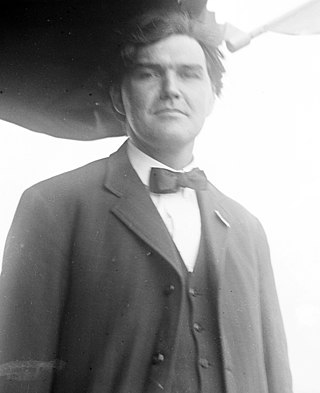
George Lawson Sheldon was an American politician and 14th governor of Nebraska with service from 1907 until 1909. He was the first native of his state to become its governor. He was a Republican from the progressive wing of that party, which was identified nationally with Theodore Roosevelt of New York.
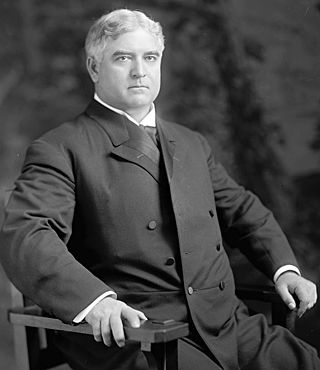
Ashton Cokayne Shallenberger was an American Democratic politician and the 15th Governor of Nebraska from 1909 to 1911.
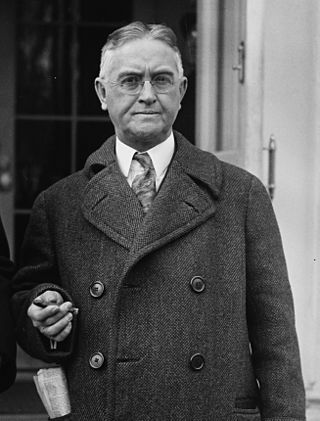
The 1924 Nebraska gubernatorial election was held on November 4, 1924, and featured former state Senator Adam McMullen, a Republican, defeating Democratic nominee, former state Representative John N. Norton, and Progressive nominee, Omaha City Commissioner Dan B. Butler.

The 1922 Nebraska gubernatorial election was held on November 7, 1922, and featured former Mayor of Lincoln Charles W. Bryan, a Democrat, defeating Republican nominee, state Senator Charles H. Randall.

The 1920 Nebraska gubernatorial election was held on November 2, 1920, and featured incumbent Governor Samuel R. McKelvie, a Republican, defeating Democratic nominee, former Governor John H. Morehead, and progressive-backed independent candidate, York Mayor Arthur G. Wray, to win a second and final two-year term in office.

The 1864 Maryland gubernatorial election took place on November 8, 1864. Incumbent Union Party Governor Augustus Bradford did not run for re-election. Union Party candidate Thomas Swann defeated Democratic candidate Ezekiel F. Chambers.

The 1907 Maryland gubernatorial election took place on November 5, 1907.

The 1890 Arkansas gubernatorial election was held on September 1, 1890. Incumbent Democratic Governor James Philip Eagle defeated Union Labor and Republican fusion nominee Napoleon B. Fizer with 55.51% of the vote.
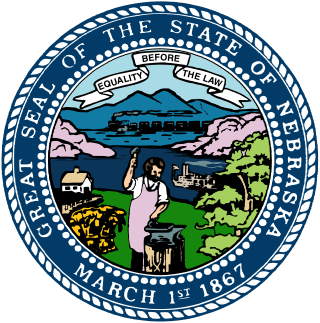
The 1914 Nebraska gubernatorial election was held on November 3, 1914.

The 1912 Nebraska gubernatorial election was held on November 5, 1912.

The 1910 Nebraska gubernatorial election was held on November 8, 1910.

The 1906 Nebraska gubernatorial election was held on November 6, 1906.

The 1904 Nebraska gubernatorial election was held on November 8, 1904. Incumbent Republican Governor John H. Mickey won re-election to a second term, defeating Democratic and Populist fusion nominee George W. Berge with 49.67% of the vote.

The 1902 Nebraska gubernatorial election was held on November 4, 1902. Republican nominee John H. Mickey defeated Democratic and Populist fusion nominee William Henry Thompson with 49.69% of the vote.

The 1900 Nebraska gubernatorial election was held on November 6, 1900.

The 1898 Nebraska gubernatorial election was held on November 8, 1898. Incumbent Populist Governor Silas A. Holcomb did not stand for re-election. Populist and Democratic fusion nominee William A. Poynter defeated Republican nominee Monroe Hayward with 50.19% of the vote.

The 1849–50 Massachusetts gubernatorial election consisted of an initial popular election held on November 12, 1949 that was followed by a legislative vote held on January 7, 1850. The ultimate task of electing the governor had been placed before the Massachusetts General Court because no candidate received the majority of the vote required for a candidate to be elected through the popular election. Incumbent Whig Governor George N. Briggs won the legislative vote and was therefore elected, defeating Democratic nominee George S. Boutwell and Free Soil nominee Stephen C. Phillips.
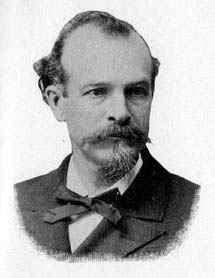
The 1900 Nebraska lieutenant gubernatorial election was held on November 6, 1900, and featured Republican nominee Ezra P. Savage defeating incumbent Nebraska Lieutenant Governor Edward A. Gilbert, the Populist and Democratic fusion nominee. Other candidates who received two percent of the vote or less included Prohibition nominee Charles R. Lawson, Midroad Populist nominee Herman G. Reiter, and Social Democratic nominee David McKibben.

The 1908 Nebraska lieutenant gubernatorial election was held on November 3, 1908, and featured incumbent Nebraska Lieutenant Governor Melville R. Hopewell, a Republican, defeating Democratic nominee Erasmus O. Garrett as well as Prohibition Party nominee Frank E. Linch and Socialist Party nominee Thomas Jorgenson.

















